FQL: A relational database language with the flexibility of documents
A strongly-typed language that combines the ability to express declarative relational queries and functional business logic in strongly consistent transactions
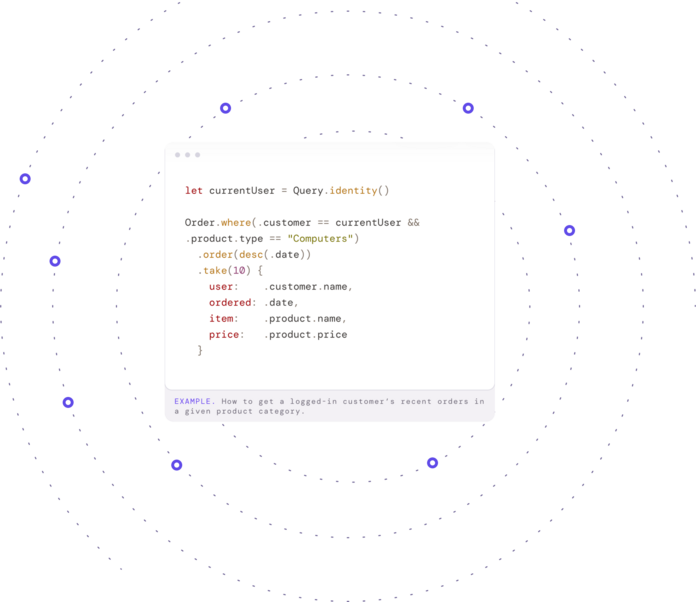

Introduction to Fauna
Explore Fauna in 2 minutes: Explore Fauna's robust features in 2 minutes: API delivery model, automatic distribution & replication, document flexibility with relational consistency & querying power, modern and identity-driven security, native multi-tenancy, and more.
“Our team is mainly made up of front-end and full-stack developers with JavaScript and TypeScript backgrounds. Since the FQL syntax is so similar to those languages, our development velocity is much faster compared to using SQL, which has a completely different mental model and syntax.”
Cameron Bell
Head of Software, Systems, & Data @ Connexin

Intuitive. Familiar. Powerful.
FQL draws inspiration from programming languages like TypeScript and Python, making it familiar and easy to adopt. Context-specific suggestions from developer tools, FQL's robust type checking, and its regular syntax help you quickly build correct queries, while its controls over query execution ensure consistent performance as your application grows.
“Fauna is the reason we are still in business. There is not enough good stuff I can say about the folks over there.” Read case study

Alice
From Wonderland
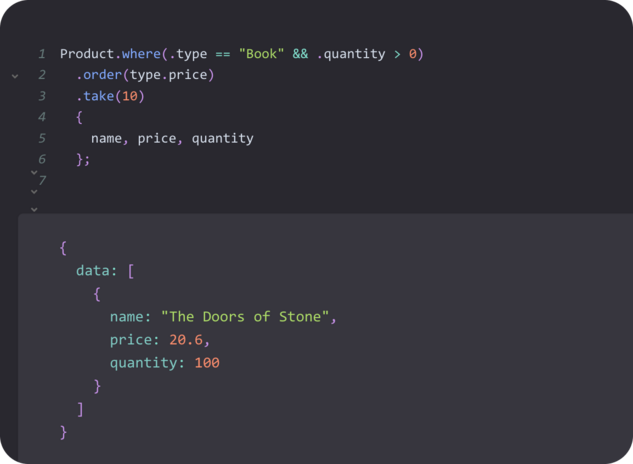
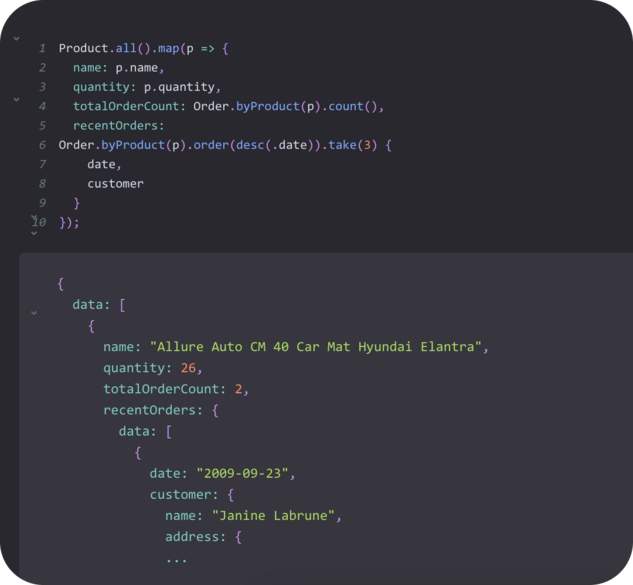
The data you want — and nothing more
Eliminate over-fetching, minimize round-trips, and simplify client-side logic. FQL's concise, GraphQL-inspired projection syntax combined with its JSON-like, flexible result format lets you structure your query result exactly how your application expects it, without the additional overhead of an ORM.
Efficient transactions as requests
FQL is a full-fledged language capable of directly expressing complex control flow and conditional logic. Its simple transaction-as-request model solves the problem of inefficient, multi-stage transactions and further enables stateful operations for serverless and edge compute environments. All while avoiding the need to manage expensive, stateful connections.
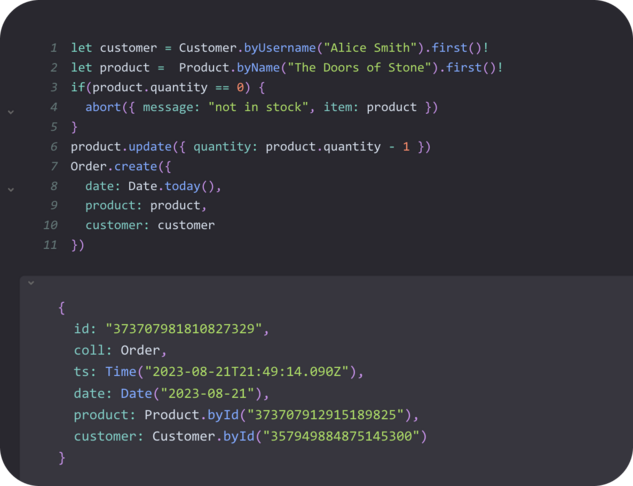
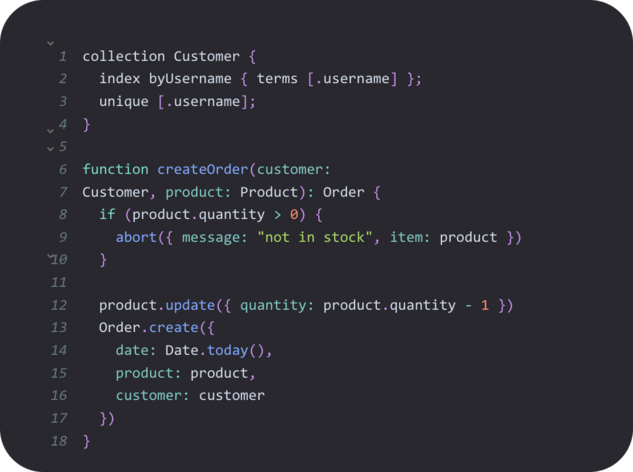
Manage your database as code
Fauna's schema language is the source code for your data model. Define your application's database resources--collections, constraints, access controls, and user-defined functions--in one place, and leverage standard source-driven workflows to treat your database as just another deployment target. Let Fauna safely apply the minimal changes necessary as schema evolves.
Dynamically composable, yet secure.
FQL's drivers offer template-based query interpolation built upon a secure wire protocol that prevents injection vulnerabilities. Leverage FQL's uniform, composable structure to dynamically generate sophisticated queries based on application input.
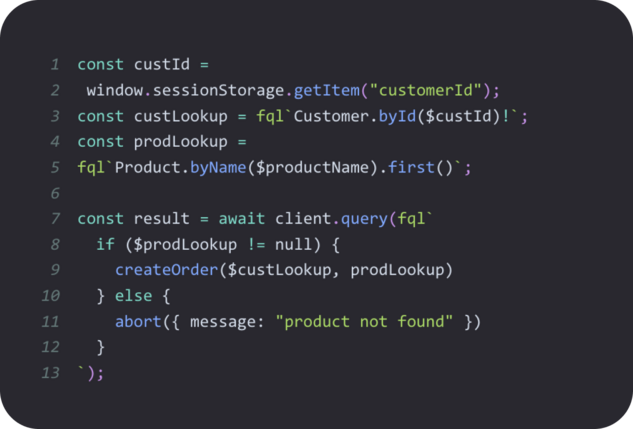

Purpose-built for application development
JOINS (SQL vs FQL)
Unlike SQL, FQL automatically resolves relations providing concise aliasing and projection.
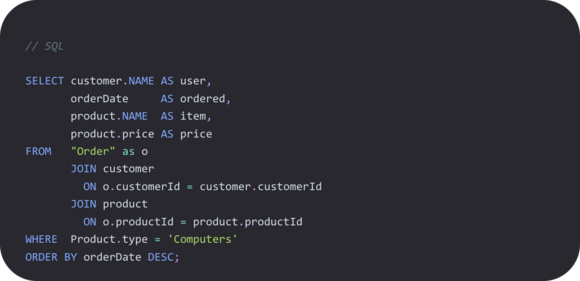
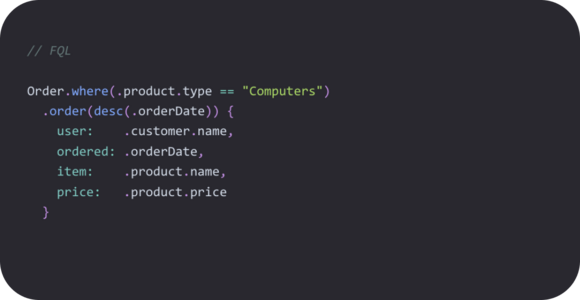
COMPOSABILITY (SQL vs FQL)
No verbose SQL joins: FQL uses iterators, method chaining, and inline projection...
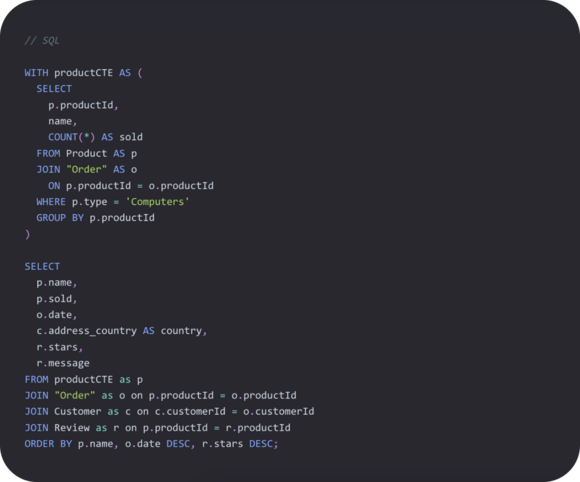

... SQL’s joins often contain redundant data; FQL’s result sets adhere to your domain model.
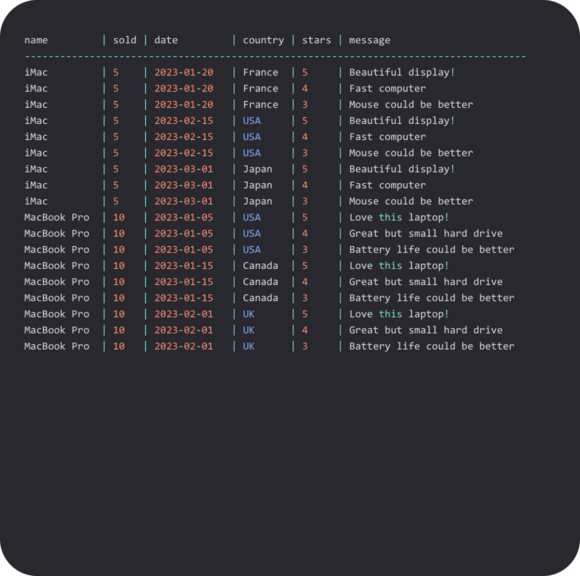
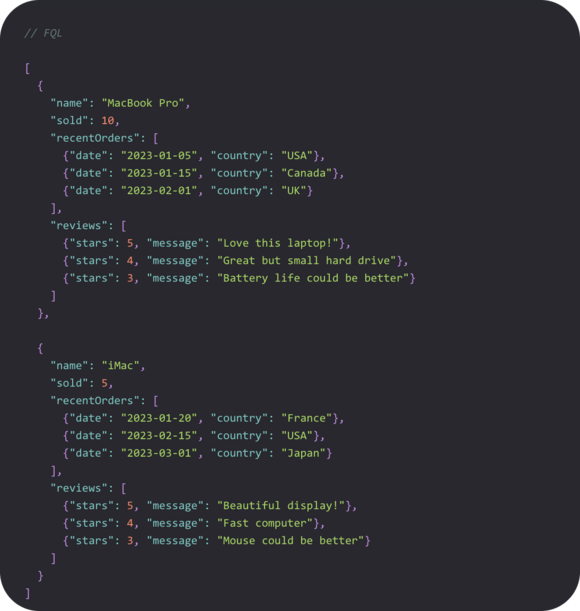
CONDITIONAL LOGIC (SQL vs FQL)
FQL allows variables and conditionals without depending on outside language logic.
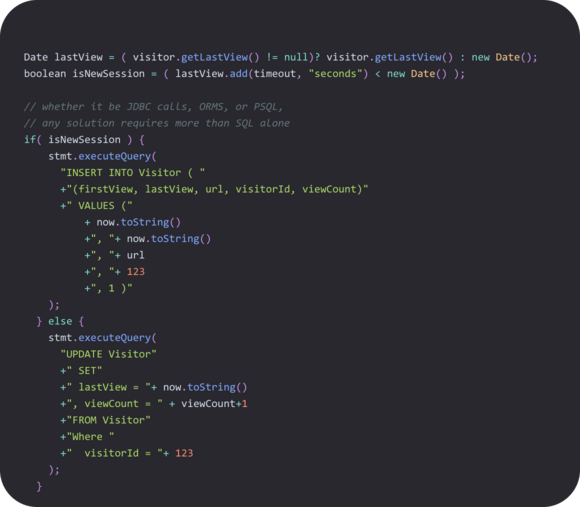
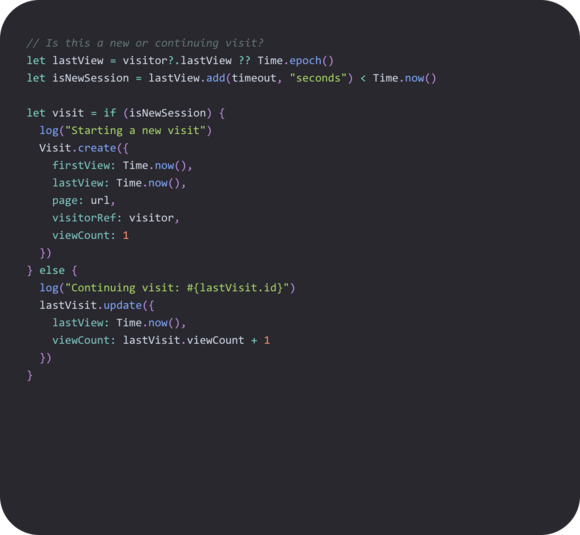

Get started building with Fauna
Explore resources that can help get you up and running in minutes.
Multi-tenant SaaS Sample App
Learn how to build a multi-tenant, multi-region SaaS app without ops using Fauna and AWS
BUILD THE SAMPLE APP
New to Fauna Query Language?
This guide can help you get started with FQL in under 10 minutes.
READ MORE
Workshops
Learn how to build complete applications using technology like AWS, Cloudflare, and more.
EXPLORE THE WORKSHOPS
FAQs
Have other questions? Feel free to contact us, or browse our documentation.

Get started building with Fauna
Explore resources that can help get you up and running in minutes.
Multi-tenant SaaS Sample App
Learn how to build a multi-tenant, multi-region SaaS app without ops using Fauna and AWS
BUILD THE SAMPLE APP
New to Fauna Query Language?
This guide can help you get started with FQL in under 10 minutes.
READ MORE
Workshops
Learn how to build complete applications using technology like AWS, Cloudflare, and more.
EXPLORE THE WORKSHOPS
FAQs


